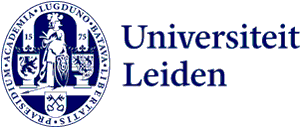
International collaboration on environmental research with appointment Arnold Tukker at Nanjing University
Arnold Tukker has been appointed as distinguished visiting professor at Nanjing University, one of China’s top research universities. ‘I am delighted about this opportunity to further connect our two institutions.’
‘China has a large-scale and vibrant research landscape, including strong industrial ecology groups in the North and South. This offers exciting opportunities,’ says Tukker, professor of Industrial Ecology at the Institute of Environmental Sciences (CML). ‘I hope to support building a strong hub for industrial ecology in mid-China.’
A fruitful collaboration
Tukker's appointment builds on a standing relation between Leiden and Nanjing University. In 2024, a memorandum of understanding was signed to strengthen scientific collaboration.
‘Our former CML colleague Ranran Wang won a prestigious personal grant to set up her own industrial ecology group at Nanjing University,’ adds Tukker. ‘She has established an excellent research network and I look forward to contributing to this group through visits, joint publications, and ongoing exchanges.’ His appointment is with the Institute for the Environment and Health, where Wang works as associate professor.
Building a bridge between Europe and China
‘China is becoming a major hub for research on sustainable production and consumption,’ says Wang. ‘Professor Tukker’s appointment will help us connect Nanjing University to the global industrial ecology community. This collaboration creates valuable opportunities for joint projects, student exchanges, and high-impact research on low-carbon transitions. We are excited to work together in shaping a stronger scientific bridge between Europe and China.’
The department of Industrial Ecology at the Institute of Environmental Sciences (CML) of Leiden University aims to support the ecological transformation of society towards sustainability. Industrial ecology is an interdisciplinary scientific field that examines the flow of materials and energy through society aiming to align them with sustainable practices. It views production and consumption as interconnected networks where waste from one process can serve as input for another, promoting a more circular economy.
